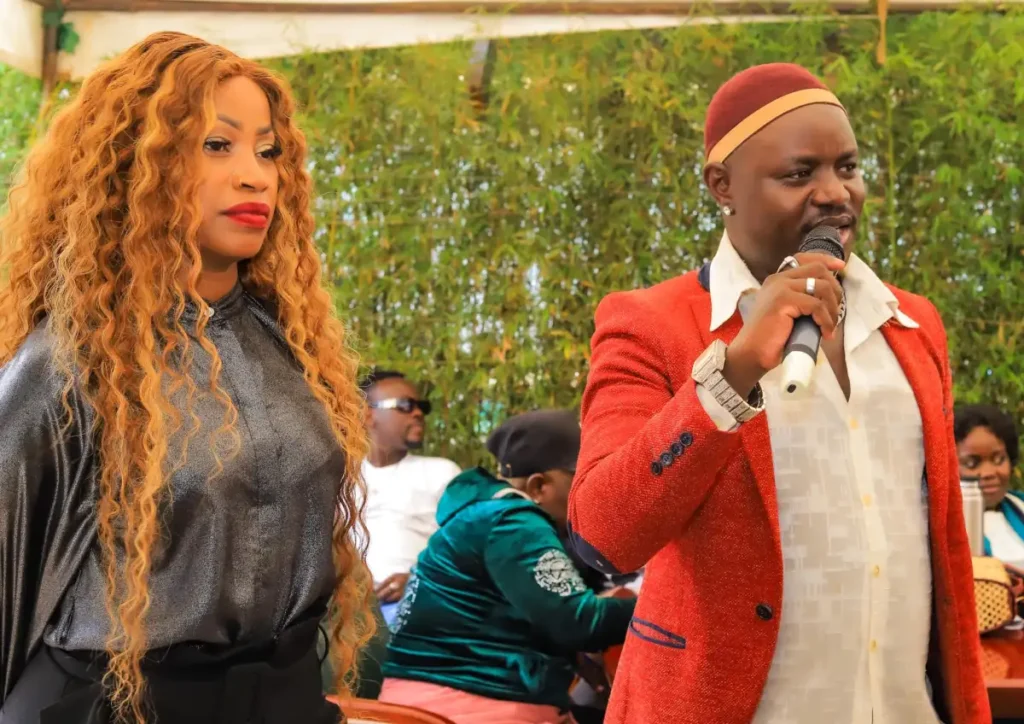Veteran Ugandan musician Abdul Mulaasi has sparked intense debate after openly criticizing the exploitative practices of modern music managers, accusing them of prioritizing profits over artist growth.
While appearing on a YouTube podcast, Mulaasi didn’t hold back as he shared his personal insights on how the artist–manager relationship has drastically changed over the years — and not for the better.
“These days, most managers don’t build artists — they use them,” Mulaasi declared. “Once they’ve made their money, they move on to the next person.”
His explosive remarks have reignited long-standing concerns about artist welfare and management ethics in Uganda’s booming entertainment scene.
“Winnie Nwagi Is Being Milked and She Doesn’t Know It”
In a shocking revelation, Mulaasi went further to name-drop one of Uganda’s biggest female stars — Winnie Nwagi, claiming she is currently being exploited by her management.
“At this time Winnie Nwagi is being milked for what they invested in her, but she doesn’t know,” Mulaasi said. “I’m sorry for revealing this.”
The bold statement immediately caught fire on social media, with fans and industry insiders debating whether Mulaasi’s claims hold truth or are simply industry speculation.
Mulaasi suggested that once an artist begins to ask “straightforward questions” about finances, royalties, or creative direction, management often turns against them.
“The moment you start asking questions as an artist, management starts trimming your power,” he added. “They start grooming someone below you to take your shine.”
“Three Years and You’re Done” — Mulaasi on the Industry’s Exploitation Cycle
According to Mulaasi, this cycle of using and replacing artists typically lasts about three years — the average lifespan of most artist contracts.
By the time artists realize they’ve been exploited, he says, the damage has already been done.
“After three years, when the contract is ending, that’s when artists realize they were being used,” Mulaasi revealed. “That’s also when management starts working behind the scenes to push another artist and replace your airplay.”
He claims that record labels and management teams strategically shift radio and TV promotion to new acts, phasing out the old artist to maintain their profit margins.

Industry Reactions: Mulaasi’s Comments Ignite Debate
Mulaasi’s claims have stirred major conversations among musicians, producers, and fans online.
Some praised him for speaking uncomfortable truths about Uganda’s music industry, while others accused him of stirring unnecessary drama and involving names like Winnie Nwagi without direct proof.
“Mulaasi is saying what many artists are afraid to say,” one Facebook user wrote. “Managers are treating artists like investments, not people.”
Another commenter countered, “Mentioning Winnie Nwagi was uncalled for. That’s a private matter between her and her label.”
Winnie Nwagi’s Camp Yet to Respond
As of now, Winnie Nwagi and her management team at Swangz Avenue have not publicly responded to Abdul Mulaasi’s claims.
The “Matala” hitmaker, who has enjoyed consistent success and is known for her bold personality, remains one of Uganda’s most celebrated and outspoken female artists.
While some fans argue that she’s too experienced to be “milked,” others believe Mulaasi’s warning should be taken seriously, as many artists before her have faced similar fates once their peak popularity began to decline.
A Bigger Problem in Uganda’s Music Business
Mulaasi’s outburst highlights a larger systemic issue — the lack of clear contracts, transparency, and artist empowerment in Uganda’s creative industry.
Without proper legal protection or strong unions, many artists often find themselves at the mercy of management teams who control their bookings, music rights, and public image.
Several former artists have shared similar experiences in the past, claiming that after building a brand and fanbase, they were left broke or sidelined once management shifted focus to younger acts.
Music analysts say Mulaasi’s comments, though controversial, could help push for greater accountability and fairness within Uganda’s entertainment ecosystem.
Mulaasi’s Call for Change
Wrapping up his podcast appearance, Mulaasi urged upcoming artists to educate themselves about the business side of the industry before signing contracts.
“Don’t just sing — learn the business. Know your worth,” he advised. “The same people who praise you today will replace you tomorrow if you don’t protect yourself.”
The veteran musician, known for hits like Faridah and Omusono Gwa Madi, emphasized that artists must learn to build sustainable careers beyond management control if they want to survive long-term.
Final Thoughts
Whether you agree with Abdul Mulaasi or not, his words have reopened a vital conversation about artist exploitation, power imbalance, and industry ethics in Uganda’s music scene.
With names like Winnie Nwagi now caught in the crossfire, fans are eager to see how top managers and record labels respond to these growing accusations.
“This is not hate,” Mulaasi insisted. “It’s the truth that no one wants to say — until it’s too late.”
💬 What do you think about Abdul Mulaasi’s claims?
Do you believe modern managers are exploiting artists like Winnie Nwagi? Share your thoughts below and stay tuned for more breaking entertainment stories from E Page One and The Pop Radar!





